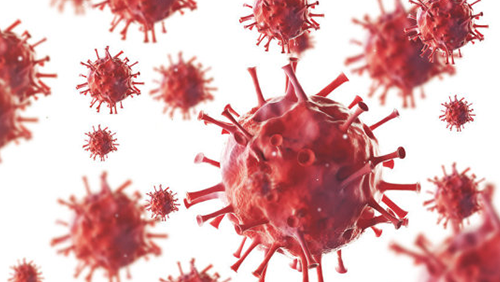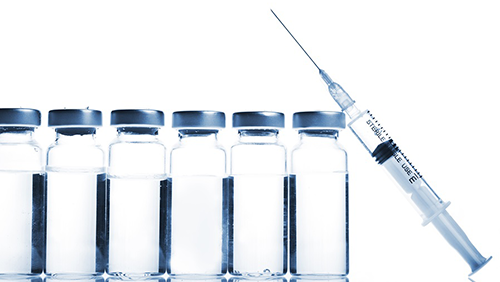The vaccines



 The first vaccine was used in the eighteenth century and to be more accurate in the year 1796 by the English Physician Edward Jenner, who is now considered the father of Immunology.
The first vaccine was used in the eighteenth century and to be more accurate in the year 1796 by the English Physician Edward Jenner, who is now considered the father of Immunology.

When Jenner performed his medical practices he attended a young woman who consulted him about some pimples on his skin, the patient worked as a milker and told Jenner that she knew that her condition was not smallpox, since she had already been sick with bovine cowpox.
These words made Edward Jenner begin a thorough study on the relationship between human smallpox and bovine.
After conducting experiments on animals, he discovered that if he took an extract from a bovine smallpox sore and injected it into a human being, he acquired protection against human smallpox.

In the year of 1796, Edward Jenner inoculated his first human patient James Phipps, an 8 year old boy, the boy contracted the smallpox and a few days later Jenner returned to inoculate it but this time with human smallpox.
As a result the child did not become ill from the human version of smallpox, it was clear that the inoculation with the smallpox virus had produced a definite degree of protection against smallpox.
Later in 1798, Edward Jenner published his research where he coined the term vaccine, which comes from the latín vacca meaning cow.

According to the World Health Organization (WHO):
A vaccine is a biological preparation that improves immunity to a particular disease. A vaccine typically contains an agent that resembles a disease-causing microorganism, and is often made from weakened or killed forms of the microbe, its toxins or one of its surface proteins. The agent stimulates the body's immune system to recognize the agent as foreign, destroy it, and "remember" it, so that the immune system can more easily recognize and destroy any of these microorganisms that it later encounters.
The definition of vaccine is a bit complex, but basically the vaccines are like a training course for the immune system, vaccines are responsible for preparing the body to fight a disease without exposing it to the symptoms of the disease.

When foreign invaders such as bacteria or viruses enter the body, cells called lymphocytes respond by producing antibodies, these are glycoproteins that circulate in the bloodstream and are dedicated to the search and capture of invading agents or antigens that can damage the body.
Data from the Centers for Disease Control and Prevention (CDC) indicate that a healthy person can produce millions of antibodies a day fighting infections so efficiently that people do not even realize they were exposed to an antigen, however The first time the body faces a particular invader can take several days to accelerate the response of the antibodies.
Unfortunately when it comes to antigens like measles virus or pertussis a few days is too long since the infection can spread and cause the death of the person before the immune system can act.

This is where the vaccines take place since they are made of dead or attenuated antigens that enter the body without causing the disease, but the immune system still sees them as an enemy and produces the response of the antibodies that neutralize and eliminate these foreign organisms.
Once the threat has passed many of the antibodies will be broken but the cells called memory cells will remain in the body making the immune organism in case of being infected later by the same antigen, thus quickly the antibodies will attack the invader before be too late.

Each vaccine is specific against one type of disease and may even be effective for one type of virus and be completely useless for another variant. In addition, there are different types of vaccines, such as the oral polio vaccine, which are live attenuated vaccines. This means that the virus used It is weakened to stimulate the production of antibodies.
Another such as the whooping cough vaccine uses the inactive virus to induce the immune response, the vaccine that protects against tetanus uses a detoxified version of the toxin that causes the disease.
Another variety of vaccines are those that use components of the virus or bacteria that elicit the immune response, for example, the vaccine against Haemophilus Influenzae Type B.
Many of the diseases that afflict man have been controlled and eradicated thanks to vaccination, other diseases such as measles or chickenpox still continue to affect the human population but are controlled, which is why it is very important to continue with the Vaccination, however, other types of diseases have spread, are deadly and the worst thing is that they still have no cure.

This is where scientific research enters to try to find vaccines that can help the population to prevent it and if it is possible to eradicate this type of diseases.
Sources if you want more information: 1, 2, 3, 4.



Hi! This is jlk.news intelligent bot. I just upvoted your post based on my criteria for quality. Keep on writing nice posts on Steemit and follow me @jlkreiss to get premium world news updates round the clock! 🦄🦄🦄